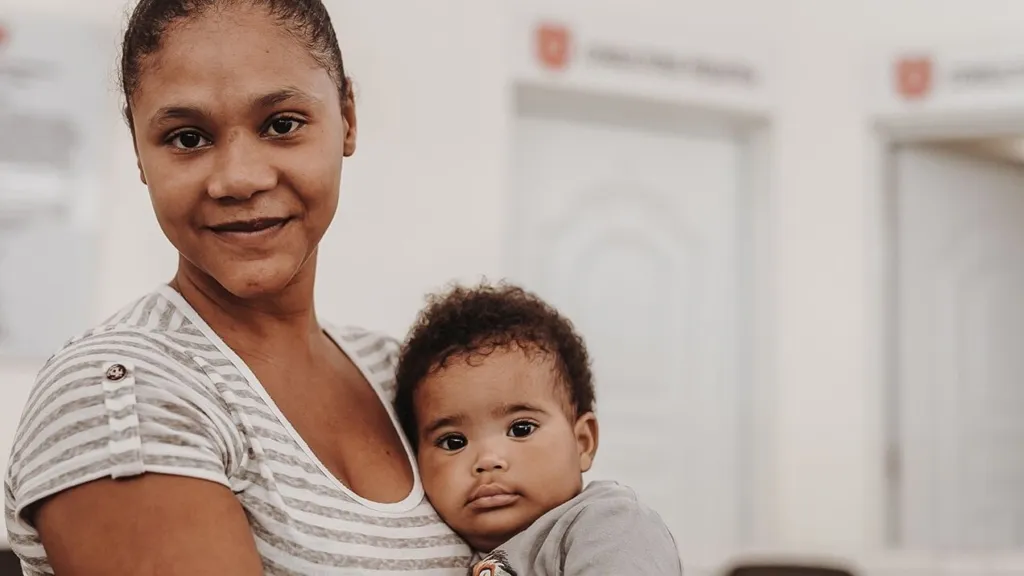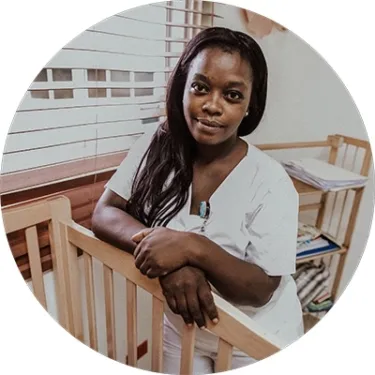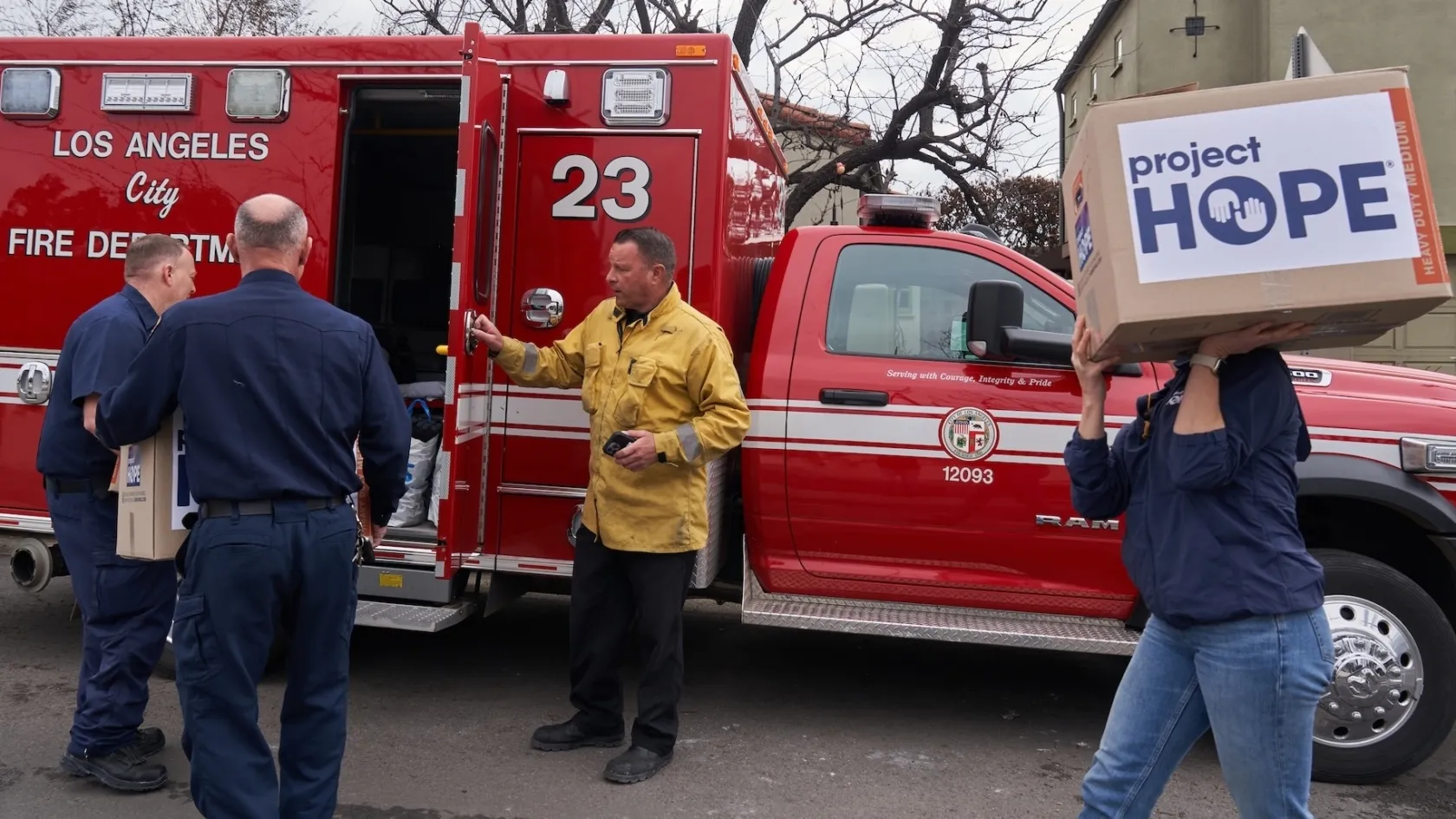How Project HOPE is Saving Mothers and their Babies in the Dominican Republic
Though health care is readily available for its 10.4 million residents, the Caribbean’s second-most populous country also has the second-highest neonatal mortality rate in the region. With contributions from Project HOPE’s health workers, obstetric patients in the Dominican Republic are learning to find support and guidance from their doctors as well as their neighbors.

“They think I am a God – when I arrive in the neighborhood they say, ‘María is here!’…besides the money, that is my payment – but it is better than money.”

María Luisa Arias is a nurse in the community outreach department at the Haina Clinic in San Cristobal, just outside the nation’s capital, Santo Domingo. Haina, like most other hospitals and health clinics in the Dominican, sees an extremely high volume of patients every day – especially expectant mothers. 99% of all births in the Dominican Republic take place in hospitals. The capacity issues don’t get better as children age: “We had to post a sign that they have ran out of consultation turns for pediatric care, because they only have one pediatrician in the afternoon,” María told us.
Aside from the large number of patients requiring care, the lack of proper health equipment is another serious problem. Common medical technology that most western countries take for granted, like incubators for newborns, are in high demand in the Dominican. At one facility, a staff member showed us photos of a ten-year-old desk lamp being used to keep an infant warm.
Even in hospitals with the equipment needed to care for pregnant women and newborns, there is still a shortage of trained staff members. Nurses, for example, are not empowered the way they are in the United States; much of the caregiving responsibility is left to doctors, who are overworked from the ever-increasing patient load. Though they are hard-working and compassionate, many nurses simply have not been trained to provide proper neonatal care.
“I feel like I went back to University again,” María told us, after attending Project HOPE’s training. She had been a registered nurse for over a year before taking the program.
A recent spate of closures for renovations has placed even more strain on national healthcare resources. The maternity department at Hospital Cabral y Baez in Santiago, the second-largest city in the country, is closed, while the Maternidad Nuestra Señora de la Altagracia in Santo Domingo is operating at less than 30% capacity due to renovation.
The reduced capacity has resulted in a surge of patients at other clinics, one that’s challenging a Dominican healthcare system that was already stretched near its limit. Staff at the maternity department of the Presidente Estrella Ureña Hospital in Santiago told us that they went from 1,076 to 6,509 deliveries in a single year. Most of the country’s newborns and mothers are now being referred to San Lorenzo de Los Mina in Santo Domingo, where the massive influx of new patients has caused neonatal mortality to increase. A majority of the deaths driving the Dominican’s neonatal mortality rate – 23.7 per 1.000 live births, compared to 5.9 in the U.S. – are attributed to Los Mina.
How We Are Providing HOPE
Project HOPE collaborated with the national Ministry of Health (MOH) in 2017 to launch the Saving the Newborn initiative, with the aim of reducing neonatal mortality across the country. At Los Mina, the program’s goal was to lower the neonatal mortality rate by 25 percent in three years. The initiative is providing high-priority equipment like ventilators, incubators, vital sign monitors, and radiant warmers.
Most importantly, HOPE is empowering nurses like María with the training necessary to not only save lives directly but teach others in the community how to care for themselves and their families.
“[We’ve started] a support group dedicated for patients. We identify the patients from their consultations and invite them to become part of the club. We arrange and schedule workshops where they meet as a group to learn about their diagnosis and discuss preventative care”.
-Nurse María Luisa Arias
Besides clubs for new and expectant mothers, the Haina Clinic also has patient clubs for diabetes and high blood pressure. María is working on creating a club for elderly patients as well.
Project HOPE’s newborn health program, launched in April 2017 and designed with assistance from faculty at the University of Miami’s Jackson Memorial Hospital, has trained over 435 hospital staff members across the country and helped 11 new nurses get NICU assignments at San Lorenzo de los Mina Maternity. We’re also working on procurement programs to provide pre-natal vitamins to pregnant mothers, as well as vaccines and medication like surfactants, which are especially vital for the survival of premature babies. Our Global Health team is developing a mobile app to deliver our “5-Star” maternal care strategy to expectant mothers in an easy-to-follow digital format.
Project HOPE believes that providing equipment as well as training to empower local healthcare professionals is the key to creating a brighter and healthier future for the people of the Dominican Republic.



